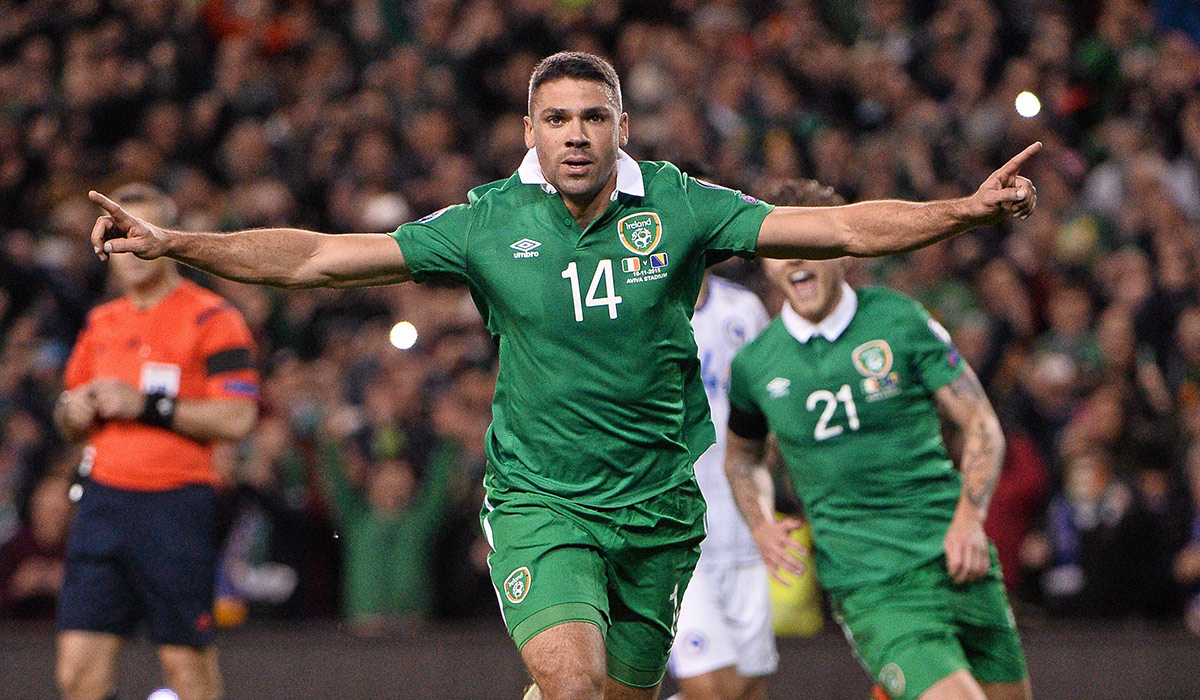The Republic of Ireland has just been drawn against the Czech Republic in their 2026 World Cup play-off semi-final, with the winner set to take on the winner of Denmark vs North Macedonia at home.
Following their miraculous 3-2 victory over Hungary in Budapest, Heimir Hallgrimsson’s men have one last chance to qualify for next summer’s tournament.
The Boys in Green are no strangers to play-offs; the last 3 times Ireland qualified for the play-offs were for Euro 2020, World Cup 2018, and Euro 2016. So here’s a look at how The Boys in Green got on.
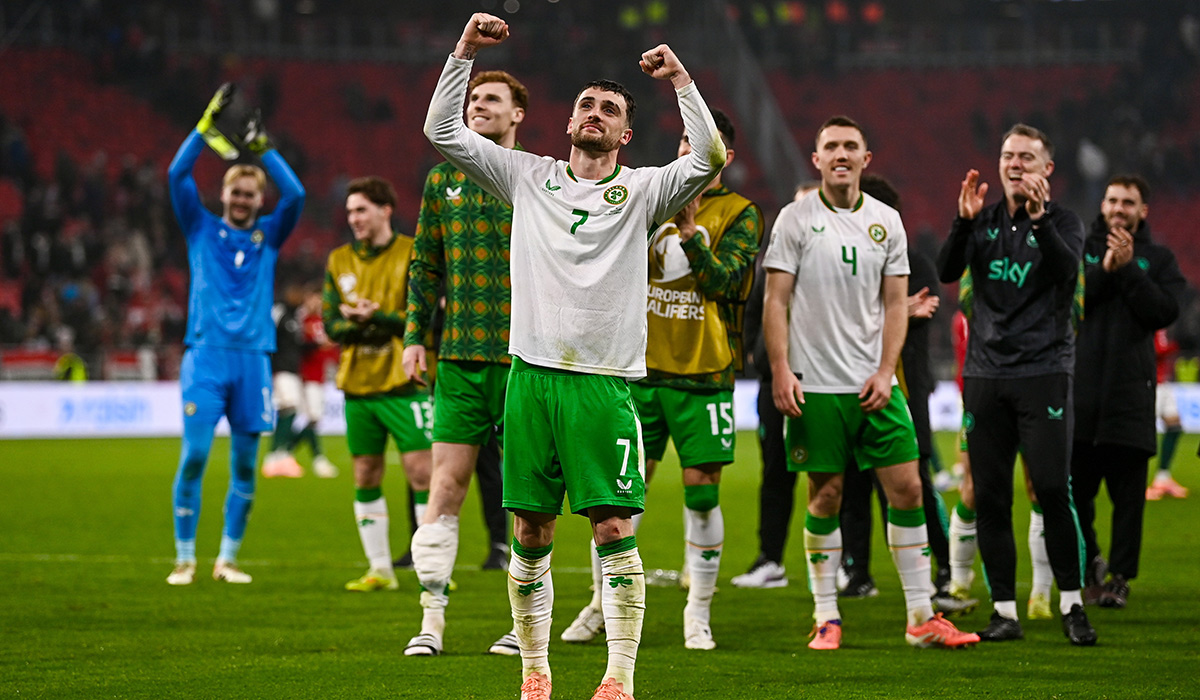 Republic of Ireland players, including Troy Parrott. Pic: Ben McShane/Sportsfile
Republic of Ireland players, including Troy Parrott. Pic: Ben McShane/Sportsfile
Euro 2020
Ireland was put into a group containing Switzerland, Denmark, Georgia, and Gibraltar. Ireland would start their qualifying campaign with two 1-0 wins against Gibraltar and Georgia, before a 1-1 draw with Denmark. They’d beat Gibraltar again 2-0 before back-to-back draws against Switzerland and Georgia.
They finished with a 2-0 loss to Switzerland and another 1-1 draw with Denmark.
This meant that the Irish finished 3rd in the group behind Switzerland and Denmark, and because they won their Nations League group, they had qualified for the play-offs.
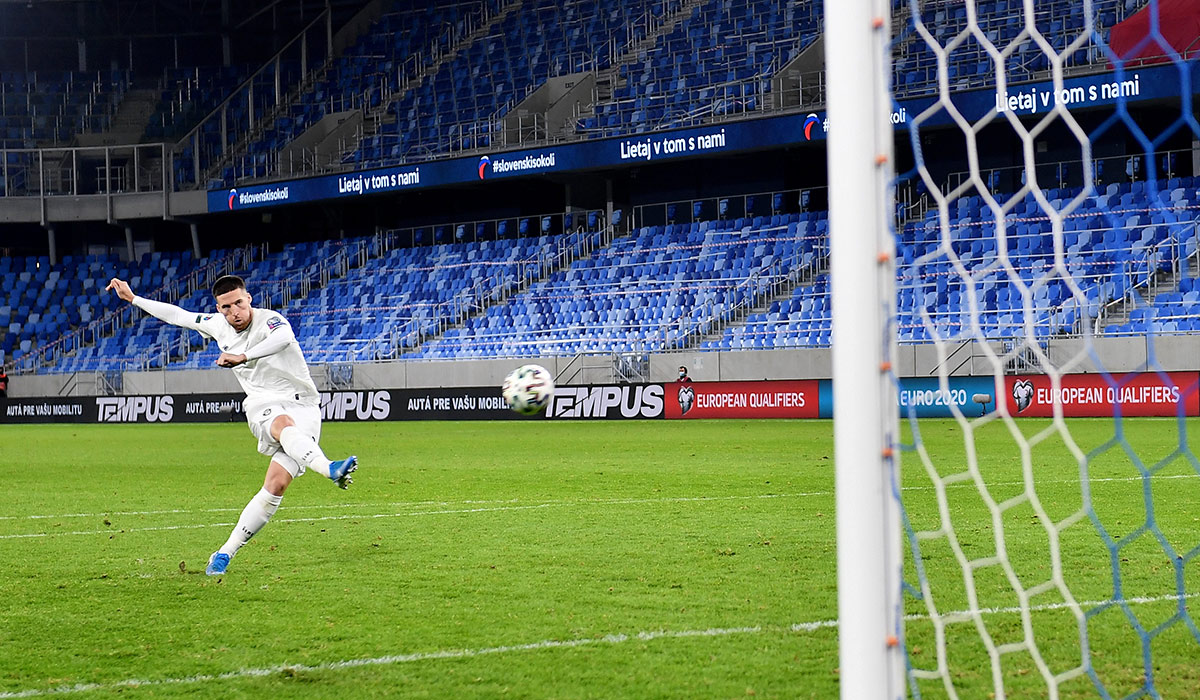 Matt Doherty misses his penalty during the shoot-out. Pic: Stephen McCarthy/Sportsfile
Matt Doherty misses his penalty during the shoot-out. Pic: Stephen McCarthy/Sportsfile
They got drawn against Slovakia in the semi-final, and the winner of that would play against the winner of Bosnia and Herzegovina and Northern Ireland. The games would be decided in a winner-takes-all match.
Ireland played out a goalless draw in Bratislava, so it went to penalties, where Slovakia were victorious 4-2, with Matt Doherty missing the crucial penalty.
2018 World Cup
For 2018 qualifying, Martin O’Neill’s men were drawn into a tough group with Serbia, Wales, Austria, Georgia, and Moldova. Going into these qualifiers, Ireland were the 3rd highest ranked team in this group at 32nd in the world.
In their first game, they drew 2-2 with Serbia in Belgrade. They then won their next 3 games, beating Georgia 1-0, Moldova 3-1 and Austria 1-0 in Vienna after a James McClean winner.
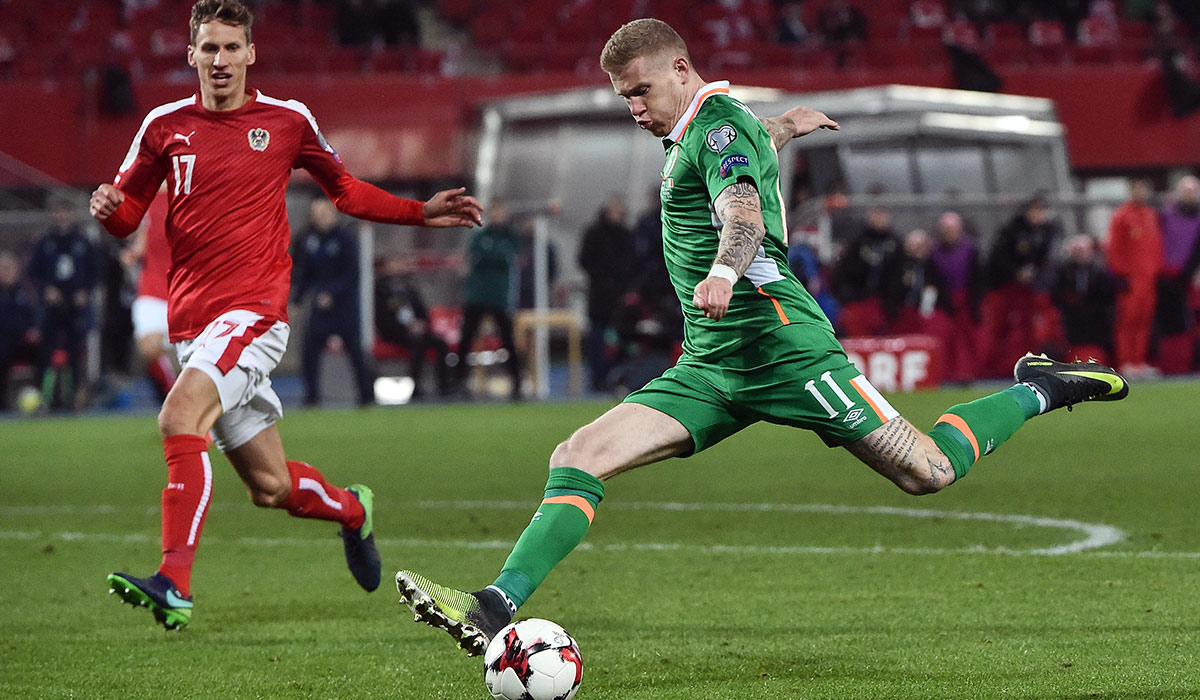 James McClean shoots to score his side’s goal against Austria. Pic: David Maher/Sportsfile
James McClean shoots to score his side’s goal against Austria. Pic: David Maher/Sportsfile
They then had three back-to-back draws against Wales, Austria and Georgia. They would suffer a 1-0 loss to Serbia before finishing their campaign with a 2-0 win against Moldova and a 1-0 win against Wales.
Ireland were one of the best runners-up, which meant they would face Denmark in a two-legged play-off where the winner would qualify for the Russia 2018 World Cup.
The first leg was played in Copenhagen in Denmark, where it would end in a 0-0 draw, which was a great result for Ireland, considering Denmark was ranked 12th in the world.
In the second leg in Dublin, Ireland took the lead with a Shane Duffy header in the 6th minute. Denmark would reply with 5 unanswered goals, including a hat-trick from Christian Eriksen, meaning Ireland’s World Cup dreams were over.
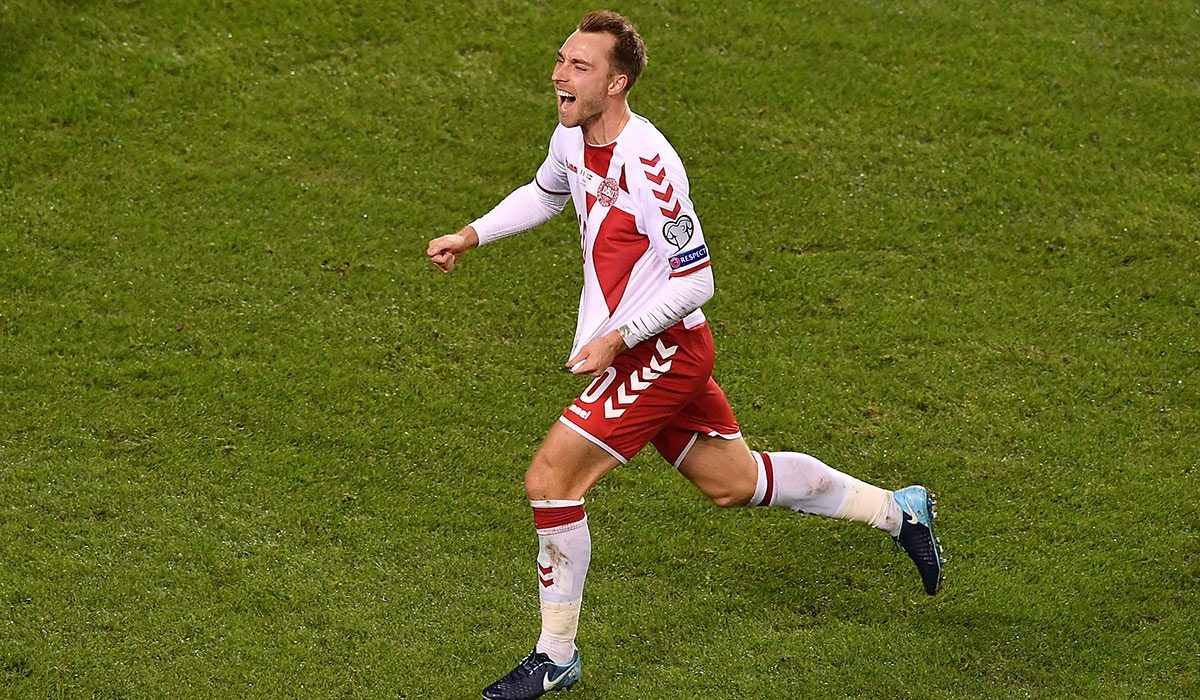 Christian Eriksen of Denmark celebrates after scoring his side’s third goal. Pic: Brendan Moran/Sportsfile
Christian Eriksen of Denmark celebrates after scoring his side’s third goal. Pic: Brendan Moran/Sportsfile
Euro 2016
Ireland got drawn in a group containing Germany, Poland, Scotland, Georgia, and Gibraltar. To start this campaign, they would beat Georgia 2-1, Gibraltar 7-0, and, surprisingly, a 1-1 draw with Germany, with John O’Shea nabbing a late equaliser.
They followed that up with a 1-0 loss to Scotland, a 1-1 draw with Poland, a 1-1 draw with Scotland, before finally winning again, this time 4-0 against Gibraltar, followed by a 1-0 win over Georgia, and even more surprisingly, a 1-0 win against Germany.
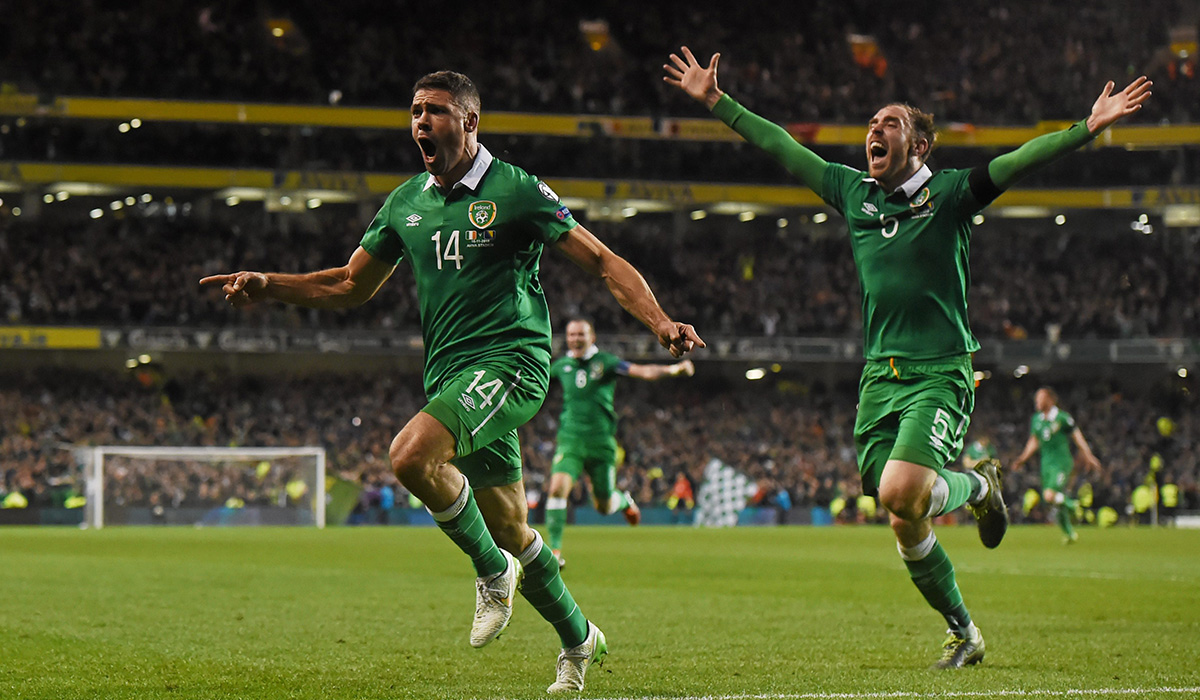 Jonathan Walters celebrates scoring his side’s second goal. Pic: Ramsey Cardy / SPORTSFILE
Jonathan Walters celebrates scoring his side’s second goal. Pic: Ramsey Cardy / SPORTSFILE
They finished with a 2-1 loss to Poland. With these results, the Boys in Green had managed to finish 3rd in the group, which meant that Ireland had qualified for the play-offs. Ireland would get drawn against Bosnia and Herzegovina in the playoff.
The first leg was played in Bosnia, where the Irish would take the lead with an 82nd-minute goal by Robbie Brady in heavy fog, but just 3 minutes after, Bosnia would reply with an 85th-minute goal from Edin Dzeko, meaning it would all be decided in Dublin.
The second leg at the Aviva Stadium saw Ireland take the lead thanks to a 24th-minute penalty scored by Jonathan Walters, who would then score again in the 70th minute to secure a 2-0 win and Ireland were off to the Euros.

